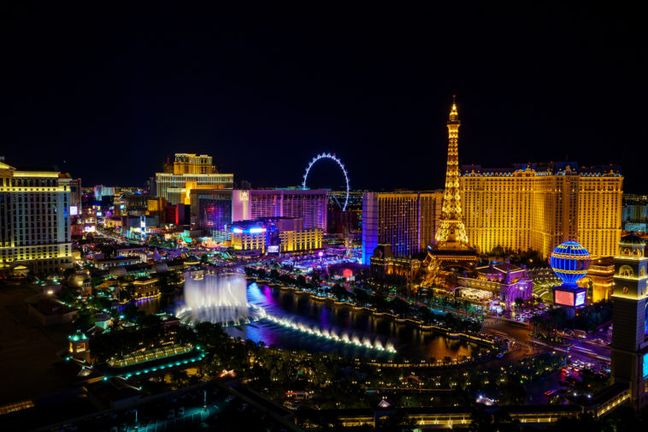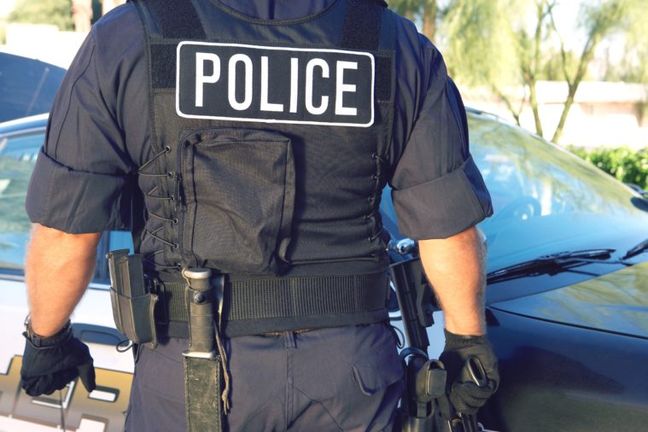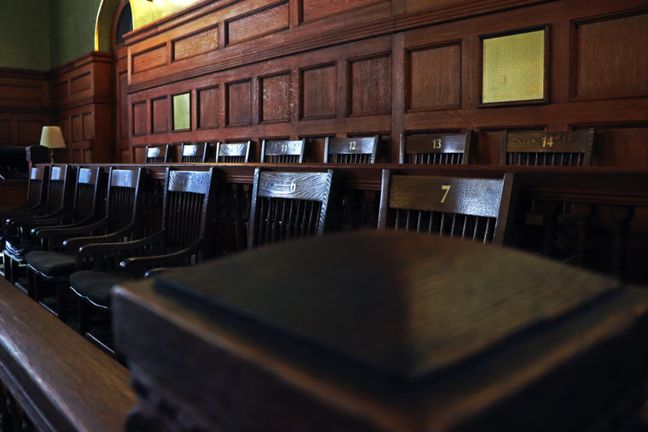Wynn Resorts, Ltd. v. Eighth Judicial Dist. Court of Nevada, and Kazuo Okada, et al, No. 70050 and 70452, 133 Nev., Advance Opinion 52 (Nev., July 27, 2017).
The Nevada Supreme Court recently provided guidance on two evidentiary issues important to any company who retains an attorney to assist in a matter currently the subject of a lawsuit or that the company believes may lead to a lawsuit. These two evidentiary issues are: (1) when a party may obtain an opposing party’s documents otherwise protected by the attorney-client privilege if the opposing party asserts the “business judgment rule” as a defense, and (2) “under what circumstances a document may be protected by the work-product privilege even if it is at issue in the litigation.”
The attorney-client privilege is a hallmark of our judicial system. Nevada codified this privilege at NRS 49.095. In general terms, the attorney-client privilege protects confidential communications between attorneys and their clients. Communications include verbal conversations as well as written and electronic communications. The protection goes both ways such that “[p]rotected communications can be from a lawyer to a client or from a client to a lawyer.” A client can be a single individual or, like in this case, a group of individuals comprising a corporate board of directors, just as the privilege extends to the attorney’s legal team providing the legal advice.
The Nevada Supreme Court explained, “The purpose of the attorney-client privilege is to encourage clients to make a full disclosures to their attorneys in order to promote the broader public interest of recognizing the importance of fully informed advocacy in the administration of justice.” However, the privilege is not absolute. For instance, communications are not privileged “if the communications are accessible to the general public in other manners, because the communications are therefore not confidential,” or if a client or attorney makes a statement to an outside party or third party.
Similarly, the work-product doctrine protects from disclosure or discovery any documents, notes, recordings, or other items that may reveal the attorney’s mental processes and were created in anticipation of litigation. The work-product doctrine is “broader than the attorney-client privilege” because it extends beyond communications. As the U.S. Supreme Court explained, “At its core, the work-product doctrine shelters the mental processes of the attorney, providing a privileged area within which he can analyze and prepare his client’s case.” Furthermore, Nevada courts recognize an attorney’s work product includes “mental impressions, conclusions, opinions, and legal theories of counsel” which “are not discoverable under any circumstances.”[1]
Like the attorney-client privilege, work-product protection is also not absolute. Furthermore, it is not always clear when the attorney-client privilege or the work-product doctrine has been waived. The recent Wynn Resorts case provides more guidance on these issues and further defines some of the nuances of Nevada’s attorney-client privilege and the work-product doctrine.
Background
Defendant Kazuo Okada is the principal of Aruze USA, Inc., which used to own about half of Plaintiff Wynn Resorts’ stock. Mr. Okada was also a board member for Wynn Resorts. At some point Wynn Resorts learned Mr. Okada, through various corporations, was involved in a casino project in the Philippines (“Philippines Casino Project”). Wynn Resorts became concerned Mr. Okada’s involvement with the Philippines Casino Project would place Wynn Resorts’ gaming licenses at risk.
Wynn Resorts hired the Freeh Group as legal counsel to investigate Mr. Okada’s actions associated with the Philippines Casino Project, determine whether such actions violated Wynn Resorts’ policies and/or placed the company’s gaming licenses at risk, and report its findings to Wynn Resorts’ board (the “Board”). The Freeh Group’s findings were summarized in a 47-page report known as the Freeh Report. The Freeh Report contained “allegations of misconduct by Okada in the development” of the Philippines Casino Project.
The Board sent the Freeh Report to two other law firms, including Brownstein Hyatt, to obtain advice as to whether Wynn Resorts should remove Mr. Okada from the Board and redeem his company’s stock as allowed by Wynn Resorts’ articles of incorporation. After obtaining the advice of the two other law firms, the Board adopted a resolution and findings that Mr. Okada and his companies were “unsuitable persons” to be stockholders. Wynn Resorts then exercised its discretionary option under the articles of incorporation to redeem Mr. Okada’s shares in exchange for a promissory note valued at $1.9 billion.
The following day, Wynn Resorts filed a complaint against Mr. Okada and his companies (the “Okada Parties”), in which Wynn Resorts asserted various claims, and included a copy of the Freeh Report as an exhibit. In response, the Okada Parties answered and asserted multiple counterclaims against Wynn Resorts. Wynn Resorts asserted defenses to the counterclaims including the business judgment rule, which is “a presumption that in making a business decision the directors of a corporation acted on an informed basis, in good faith and in the honest belief that the action taken was in the best interests of the company.” Acting on an informed basis can include receiving the advice of an attorney.[2]
Okada Parties’ Demand for Documents
During litigation, the Okada Parties requested Wynn Resorts produce all the documents and evidence the Freeh Group relied on in generating the Freeh Report (about 6,000 pages). In addition, the Okada Parties requested all the documents Brownstein Hyatt “generated in the course of developing and rendering its advice to the Board.” Wynn Resorts denied these requests, asserting the attorney-client privilege and attorney-work product protection. In response, the Okada Parties filed two motions to compel Wynn Resorts to produce the documents.
The Okada Parties argued Wynn Resorts waived the attorney-client privilege and attorney-work product protections to the Brownstein Hyatt documents by placing Brownstein Hyatt’s advice at issue. Stated differently, the Okada Parties argued that since Wynn Resorts claimed it relied on Brownstein Hyatt’s advice in deciding to redeem its shares and remove Mr. Okada from the Board, the Okada Parties were entitled to review the substance of the attorney’s advice. Wynn Resorts disagreed, arguing that stating the Board relied on an attorney’s advice prior to making a business decision does “not place the substance of the legal advice at issue.” The district court sided with the Okada Parties’ and ordered Wynn Resorts to produce all Brownstein Hyatt documents the law firm provided the Board because Wynn Resorts had asserted the business judgment rule as a defense, thereby placing “the attorney’s advice at issue.”
Similarly, the Okada Parties argued the Freeh Report documents were not privileged or subject to the attorney-work product protection because Wynn Resorts attached the Freeh Report to the complaint and sent the Freeh Report to a newspaper. After reviewing certain Freeh documents, the district court determined documents may have been generated in anticipation of litigation commencing February 22, 2012. Consequently, the district court held: (1) the attorney work-product doctrine did not apply to any documents created before February 22, 2012 because “the work was not done in anticipation of litigation,” and (2) Wynn Resorts waived the attorney-client privilege by publicly disclosing the Freeh Report and by placing the advice contained in the report at issue in the lawsuit.
Writ of Mandamus to the Nevada Supreme Court
In response to the district court’s two orders compelling the production of the Freeh and Brownstein Hyatt documents, Wynn Resorts asked the Nevada Supreme Court to prevent the document production. As discussed below, the Court clarified multiple issues relating to the business judgment rule and waiver of the attorney-client privilege.
Attorney-Client Privilege is Not Waived by Asserting the Business Judgment Rule
As an initial matter, the Court held the business judgment rule protects actions by a board itself and not just “an individual director’s action[s].” The Court also held a party does not waive attorney-client privilege by asserting the business judgment rule. Additionally, the Court reaffirmed Nevada’s position that the business judgment rule prevents a court from second guessing a corporate board’s decision and replacing a board’s decision with its own “so long as a minimum level of care is exercised [by the board] in arriving at the decision.” Once a board demonstrates it made an informed decision and acted in good faith in a manner it believed was best for the company, a court will not substitute its own decision for that of the board’s, even if the court disagrees with the decision.
A party challenging a board’s decision must show the board acted in bad faith. However, the Court held Nevada’s business judgment rule found at NRS 78.138 prohibits a court or opposing party from “reviewing the substantive reasonableness of a board’s business decision.” In fact, Nevada adopted most of the language for its business judgment law from language in a model act that many other states incorporated. However, the Nevada legislature explicitly omitted the “reasonableness” standard found in the model act. Therefore, a party cannot have access to the documents or other material the board relied on to make its decision, to determine whether the advice was reasonable or the board acted in good faith. In other words, “it is the existence of legal advice that is material to the question of whether the board acted with due care, not the substance of that advice.”
To determine whether a board acted in good faith or due care without reviewing privileged documents and communications, the Court adopted the following factors reached by the U.S. District Court for the Western District of Virginia: (1) “inquiry into the identity and qualifications of any sources of information or advice sought which bear on the decision reached;” (2) “the circumstances surrounding selection of these sources;” (3) “the general topics (but not the substance) of the information sought or imparted;” (4) “whether advice was actually given;” and (5) “whether it was followed, and if not, what sources of information and advice were consulted to reach the decision in issue.”[3]
The Court found the district court erred in ordering Wynn Resorts to produce the Brownstein Hyatt documents. Wynn Resorts did not waive the attorney-client privilege by asserting the business judgment rule. On remand, the Okada Parties will need to address the above-outlined five factors to support its claim the Board did not act in good faith.
A Party May Waive the Attorney-Client Privilege by Disclosing the Specific Details of an Attorney’s Advice
A client waives the attorney-client privilege where he “expressly or impliedly inject[s] his attorney’s advice into the case.” As the Court explained, “advice of counsel is placed [at-]issue where the client asserts a claim or defense, and attempts to prove that claim or defense by disclosing or describing an attorney-client communication.” Conversely, simply stating you spoke with your attorney about a certain subject does not waive the privilege; however, disclosing the substance of the communications (i.e., what was actually said) does.
In the present case, the Court held Wynn Resorts waived the attorney-client privilege with regards to the Freeh Report by attaching the report to its complaint against the Okada Parties, as well as disclosing the report to the press and a regulatory agency. Wynn Resorts injected its attorney’s advice into the case since the Freeh Report lays out “the reason for the investigation, directly quotes concerns and observations, summarizes the content of emails from identified individuals, identifies persons interviewed, and sets forth investigative results.” Nonetheless, the Court determined some of the 6,000 documents the Freeh Report was based on may still be protected by the attorney work-product doctrine.
The “Because Of” Test
The attorney work-product doctrine protects from disclosure documents an attorney prepares in anticipation of litigation. Different jurisdictions use different methods for determining whether a document was prepared “in anticipation of litigation.” Until now, Nevada courts had not adopted one method over another; however, in its Wynn Resorts opinion, the Court adopted the “because of” test. Under this test, “documents are prepared in anticipation of litigation when ‘in light of the nature of the document and the factual situation in the particular case, the document can fairly be said to have been prepared or obtained because of the prospect of litigation.’”[4] Said another way, a document that would not exist “but for the prospect of litigation” is subject to protection.
The Court also clarified that a document does not necessarily lose its work-product protection simply by virtue of having been created to assist in a business decision. The Court adopted the “totality of circumstances” standard for determining whether a document was created “because of” the anticipation of litigation or simply in the “ordinary course of business,” in which case the document is not protected. A totality of circumstances approach evaluates the document and the reasons its creation to determine whether a request for legal advice is implicitly or explicitly stated in the document, “taking into account the facts surrounding the creation of the document and the nature of the document.”
The Court concluded the record held insufficient evidence to determine whether the district court had used the “because of” and “totality of circumstances” test in ordering Wynn Resorts to disclose the Freeh Report’s underlying documents. The Court consequently remanded to the district court to apply those tests to the Freeh Report documents.
Lastly, the Court reaffirmed one of the tenets of the work-product doctrine: “selective disclosure of work product to some, but not to others, is permitted,” and does not necessarily waive the privilege. However, “waiver of the protection is, however, usually found when the material is disclosed to an adversary.”
Significance
The Wynn Resorts opinion addresses multiple issues about the attorney-client privilege, the business judgment rule, and the work-product doctrine that were previously grey areas for Nevada attorneys and their clients. Parties now know the business judgment rule applies to whole boards and not just individual board members. A company asserting the business judgment rule as a defense can feel confident knowing it has not waived attorney-client privilege by doing so. In addition, Nevada courts have adopted the “because of” test, using a “totality of circumstances” approach, for determining whether a document is protected by the work-product doctrine.
The specific facts of Wynn Resorts serve as a reminder to all parties to consider when and to whom to disclose certain documents where a lawsuit is anticipated or already underway. Finally, to err on the side of caution, if a party desires work-product protection for a document prepared in anticipation of litigation, the document should expressly indicate the party is seeking legal advice.
[1] See NRCP 26(b)(3); and Wardleigh v. Second Juicial Dist. Court, 111 Nev. 345, 891 P.2d 1180, 1189 (1995).
[2] Nevada codified the business judgment rule at NRS 78.138.
[3] See WLR Foods, Inc. v. Tyson Foods, Inc., 857 F. Supp. 492, 494 (W.D. Va. 1994).
[4] See Restatement (Third) of the Law Governing Lawyers §87 cmt. i (2000).
Download or Print Article Here

 Author: Christopher Lund
Author: Christopher Lund
 Cannabis Workers Allege Quota to Trim 4 Pounds a Day Violates the California Labor Code
Cannabis Workers Allege Quota to Trim 4 Pounds a Day Violates the California Labor Code
 The Ninth Circuit Reminds Us: Every Word Matters
The Ninth Circuit Reminds Us: Every Word Matters
 NO WAY, PRO SE! The Consequences of Abusing the Judicial System as a Pro Se Litigant in Colorado
NO WAY, PRO SE! The Consequences of Abusing the Judicial System as a Pro Se Litigant in Colorado
 Victim of Financial Mismanagement or Unlawful Retaliation? New Jersey City University Program Founder Claims School Retaliated After Reporting Alleged Sexual Harassment
Victim of Financial Mismanagement or Unlawful Retaliation? New Jersey City University Program Founder Claims School Retaliated After Reporting Alleged Sexual Harassment
 “Real Housewives” Gets a Reality Check
“Real Housewives” Gets a Reality Check
 Missing a Chapter: Insufficiency of Expert Deposition Testimony in Medical Malpractice Litigation
Missing a Chapter: Insufficiency of Expert Deposition Testimony in Medical Malpractice Litigation
 Crash Course: Why Summary Judgment Misses the Mark in Illinois Multi-Cause Limousine Crash Collision
Crash Course: Why Summary Judgment Misses the Mark in Illinois Multi-Cause Limousine Crash Collision
 Bitter Truths: Lead, Cadmium, and Defective Pleadings in California Chocolate Class Action
Bitter Truths: Lead, Cadmium, and Defective Pleadings in California Chocolate Class Action
 The Law of Unintended Consequences: Including Insurance Brokers in Litigation Strategy Communication May Waive the Attorney-Client Privilege
The Law of Unintended Consequences: Including Insurance Brokers in Litigation Strategy Communication May Waive the Attorney-Client Privilege
 Federal Judge Throws Out Portion of Coverage Lawsuit in Nevada
Federal Judge Throws Out Portion of Coverage Lawsuit in Nevada
 Defenses Raised in an Answer Can Be Waived if Not Timely Reaffirmed in Discovery
Defenses Raised in an Answer Can Be Waived if Not Timely Reaffirmed in Discovery
 Nevada Court of Appeals Refuses to Define Breach of the Peace for Self-Help Repossession
Nevada Court of Appeals Refuses to Define Breach of the Peace for Self-Help Repossession
 Defendants Entitled to Attorney Fees as Prevailing Party in Voluntary Dismissal Cases Under Certain Circumstances
Defendants Entitled to Attorney Fees as Prevailing Party in Voluntary Dismissal Cases Under Certain Circumstances
 Nevada Limits Access to Police Body Camera Footage
Nevada Limits Access to Police Body Camera Footage
 Nevada Clarifies Exceptions to the American Rule of Attorney Fees
Nevada Clarifies Exceptions to the American Rule of Attorney Fees
 Actual Notice and Mailing Checks in Nevada
Actual Notice and Mailing Checks in Nevada
 Jury Demand within Complaint is Insufficient in Nevada
Jury Demand within Complaint is Insufficient in Nevada